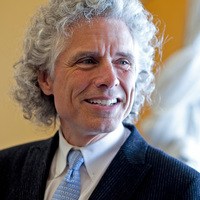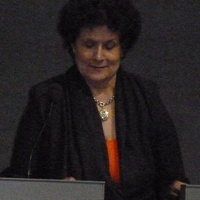Books by Sarah Bay-Cheng
Performance and Media introduces readers to the complexity of new media-based performances and ou... more Performance and Media introduces readers to the complexity of new media-based performances and outlines methods to understand and contextualize this work. Each author presents a different model for how to approach categorizations, while inviting readers to develop their own critical frameworks, i.e., taxonomies, to analyze both past and emerging performances. The book presents the concept of multiple taxonomies as a new model of criticism in a dynamic field.
This book explores the relationship between theater and digital culture. The authors show that th... more This book explores the relationship between theater and digital culture. The authors show that the marriage of traditional performance with new technologies leads to an upheaval of the implicit “live” quality of theatre by introducing media interfaces and Internet protocols, all the while blurring the barriers between theater-makers and their audience.
Critical anthology of plays by modernist American poets, c. 1916 (Stevens) to 1954 (Pound).
Study of Gertrude Stein's major plays from the perspective of the historical avant-garde, emergin... more Study of Gertrude Stein's major plays from the perspective of the historical avant-garde, emerging film technologies, and queerness.
Essays and Articles by Sarah Bay-Cheng
Theatre Journal, 2024
Contribution to Digital Scholarship Roundtable The State of the Field. Overview of digital resear... more Contribution to Digital Scholarship Roundtable The State of the Field. Overview of digital research and scholarship in theatre and performance studies. Web-only content for Theatre Journal.
The Globe and Mail , 2020
This article was published more than 4 years ago. Some information may no longer be current. A cl... more This article was published more than 4 years ago. Some information may no longer be current. A closed sign hangs on the door of an art museum in Vienna on March 11, 2020.
The Conversation, 2020
It’s been six months since COVID-19 emerged in North America, causing theatres to close. In the U... more It’s been six months since COVID-19 emerged in North America, causing theatres to close. In the United States, Dr. Anthony Fauci, the now-familiar director of the U.S. National Institute of Allergy and Infectious Diseases, recently predicted that theatres may remain closed until a year after a vaccine is discovered. Artists and arts organizations are asking: What is the future of live performance? The NBA’s #WholeNewGame may provide important lessons for performing artists and their organizations.
The Conversation, 2022
Is musical theatre an event, a sound — or something else? The 2022 Grammy Award for best musical ... more Is musical theatre an event, a sound — or something else? The 2022 Grammy Award for best musical theatre album went to a show that originated as a TikTok smash hit: The Unofficial Bridgerton Musical by duo Abigail Barlow and Emily Bear. Bear, a 20-year old pianist, composer and former child prodigy produced the album. She and Barlow both composed music and wrote lyrics. Barlow, a singer who previously established herself with a massive TikTok fan base, sings almost all the parts of all the songs. What does all this mean for the future of musical theatre?
The Conversation , 2023
The Writers Guild of America (WGA) strike has been going for over 130 days. Joined by the Screen ... more The Writers Guild of America (WGA) strike has been going for over 130 days. Joined by the Screen Actors Guild-American Federation of Television and Radio Artists (SAG-AFTRA), Hollywood writers are protesting several issues. Among other demands, the WGA is calling for explicit regulations on the use of AI in media production, in what Time Magazine called “a pivotal moment” in film history. Enter Tom Cruise and cue the Mission: Impossible theme music. Although Barbie and Oppenheimer received most attention this summer, Tom Cruise’s latest instalment in the Mission: Impossible series (Dead Reckoning Part One), reveals more about the future of movies.
The Journal of American Drama and Theatre, 2000
The Journal of American drama and theatre, 2005

International Journal of Arts and Technology , 2009
The deployment of virtual characters in intermedia performance drives divergent agendas of this r... more The deployment of virtual characters in intermedia performance drives divergent agendas of this research group. From the perspective of performance studies, we examine the effect of computer-based characters as actors and believe explorations of mediated agency can open up new forms of engagement for live productions. From the visualisation point of view, we are interested in how abstraction and animation techniques, based on motion tracking and procedural methods, convey character and warp and extend the gestural repertoire of a human actor. In terms of interactive drama, we are working on stream of consciousness characters: algorithmically recombining text to create a psychological entity with an autonomous inner structure. From an artificial intelligence perspective, we investigate how to design and use intelligent agents as actors. These agendas reflect an odd mix of aesthetic and technical concerns, and rightly so, as they are driven by the different goals of our interdisciplinary team.
Haus der Kulturen der Welt, Goethe Institute , 2017
For the 100 Years of Now. Journal Sarah Bay-Cheng attended the US premier of Top Secret Internati... more For the 100 Years of Now. Journal Sarah Bay-Cheng attended the US premier of Top Secret International (Staat 1) in New York. Beyond the Rimini Protokoll production itself the professor of theatre studies turns her attention to cyber attacks, fake news, and the image of the intelligence services. An exploration of the vulnerability of the algorithms and the contemporary crisis of democracy – in the theatre and in real life.
Modernism/modernity Print+, 2019
A consideration of Jordan Peele's film "Get Out" (2017) as extension of acting techniques found i... more A consideration of Jordan Peele's film "Get Out" (2017) as extension of acting techniques found in modernist theatre (namely, Brecht) as well as in Hollywood cinema of the 1930s-50s. A consideration of doubleness in theories of racial performance aligned with W.E.B. DuBois' description of double consciousness and reinforced in Peele's inherent critique of mass media technologies.
[http://www.tandfonline.com/doi/full/10.1080/10486801.2017.1343242]
This essay has been devel... more [http://www.tandfonline.com/doi/full/10.1080/10486801.2017.1343242]
This essay has been developed from earlier talks by the same or similar titles. It explores ideas related to questions of digital media, photography, performance documentation, and their effect on the circulation of performance through media, with analysis of specific projects by Guillaume Désanges and Rabih Mroué.
My contribution to Editors' Forum: What Is a Question? Explores the formulation of a research que... more My contribution to Editors' Forum: What Is a Question? Explores the formulation of a research question in relation to performance.

In the wake of the so-called digital revolution, media and technology affect not only performance... more In the wake of the so-called digital revolution, media and technology affect not only performance practices, but also how the history of those practices can be documented, analyzed, and shared. The last several years have seen significant increases in digital research and scholarship projects, as well as more official recognition throughout the field, including special issues and edited collections dedicated to the digital humanities in theatre and performance studies research. At the same time, digital technologies offer new approaches to history that may themselves resemble performance. These histories need not be only linear, narrative historiography, but can enable a conception of historiography that exists in multiple places at once, incorporates many voices (some contradictory), and is distributed, sometimes bodily, among multiple perspectives. This essay considers both the distinctions between digital performance and digital methodologies in performance history and historiography, and how these changing digital practices—both methodological and creative—are shaping both the history of performance and history as performance. It responds to larger trends in digital methods affecting not only academia, but also contemporary culture more broadly. The convergence of these inquiries into digital history and theatre culminates in a case study of the Decision Points Theater at the George W. Bush Presidential Museum and Library in Dallas, where the recent history of the Bush presidency can be played out in real time by visitors through digital, performative displays.
For the 100 Years of Now Journal Sarah Bay-Cheng attended the US premier of “Top Secret Internati... more For the 100 Years of Now Journal Sarah Bay-Cheng attended the US premier of “Top Secret International (State 1)” in New York. Beyond the Rimini Protokoll production itself the professor of theatre studies turns her attention to cyber attacks, fake news, and the image of the intelligence services. An exploration of the vulnerability of the algorithms and the contemporary crisis of democracy – in the theatre and in real life.
In ‘Postmedia Performance’ Sarah Bay-Cheng offers theatre and performance scholarship a provocati... more In ‘Postmedia Performance’ Sarah Bay-Cheng offers theatre and performance scholarship a provocation to rethink its approach to making sense of the digital.











Uploads
Books by Sarah Bay-Cheng
Essays and Articles by Sarah Bay-Cheng
This essay has been developed from earlier talks by the same or similar titles. It explores ideas related to questions of digital media, photography, performance documentation, and their effect on the circulation of performance through media, with analysis of specific projects by Guillaume Désanges and Rabih Mroué.
This essay has been developed from earlier talks by the same or similar titles. It explores ideas related to questions of digital media, photography, performance documentation, and their effect on the circulation of performance through media, with analysis of specific projects by Guillaume Désanges and Rabih Mroué.
Many thanks to Lance Meekel and the other members of the Graduate Student Theatre Organization, who made my stay so enjoyable.
Images are available by request. Email me if you're interested.